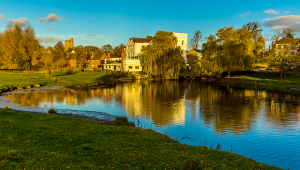21 November 2003
The Scottish Executive this week defended the cost of running the devolved administration after new figures disclosed that civil service numbers have risen by 17% since the Holyrood Parliament was set up four years ago.
The Scottish Executive and its agencies now employ more than 15,200 civil servants, compared with about 13,000 in 1999. The extra cost to the taxpayer has been put at £50m.
Scottish National Party leader John Swinney said the 'massive increase in bureaucracy beggars belief'. However, a Scottish Executive spokeswoman said the rise had been necessary to meet the demands of devolution.
The figures show that the number of civil servants directly employed by the Executive increased by 25% to a total of 4,200. The number employed by Executive agencies went up to more than 11,000, a rise of 13%.
The cost of devolved government in Scotland now totals £227m, compared with £154m in 1999. The amount is expected to rise to £236m by 2006.
The extra costs include £5m for salaries and training and £2m for accommodation. The rest will go on information technology and overheads such as stationery and travel costs.
Swinney pledged to return civil service numbers to 1999 levels if the SNP came to power. 'Nobody can seriously believe that Scotland is better governed under the Executive than pre-devolution,' he said.
'There is a massive disillusionment among the public with Labour's failure to make a real difference. Cutting bureaucrat numbers back to 1999 levels would save something of the order of £50m a year.'
The Scottish Executive spokeswoman said that, although the number of Executive staff had increased by 900 since devolution, the current staffing level remained below the 4,700 figure for 1993.
She added: 'In order to reach the level of staffing required to meet the demands of devolution, a period of rapid growth was necessary.
'The increase in staffing reflects the increased workload on officials and the change in the type of work following devolution. For example, the number of parliamentary questions answered by officials has increased by 400%.'
She added that the Executive had increased its capacity to respond quickly and flexibly to new issues and priorities.
Civil Service commissioners 'should be approved by party leaders'
MPs drafting a civil service Bill have been told they should insert a clause requiring all appointments to the Civil Service Commission to be approved by the leaders of the major political parties.
First civil service commissioner Baroness Prashar told the public administration select committee the move would ensure the 'full independence' of senior mandarins.
The PASC is consulting Whitehall experts on its proposed Bill, which aims to enshrine in law the ethics, values and independence of the civil service following a series of threats to the role of mandarins, such as Labour's use of special advisers.
Speaking on November 18, Prashar told the PASC she would support an Act that also set out the specific duties of the CSC. But she warned committee chair Tony Wright that his draft Bill did not guarantee that appointment to the commission would be independent. 'If you want to reinforce the independence of the commission, I think there would be good reason to consult the leader of each political party,' she said.
But both Prashar and Sir Nigel Wicks, the chair of the Committee on Standards in Public Life, rejected calls for the Bill to contain a specific limit on the number of special advisers used by future governments.
Wicks said: 'The key to this issue… is that Parliament should agree a number.' But he backed the idea of the draft Bill prescribing what special advisers could not do.
MoD slammed for wasting £24m on Apache contract
The Ministry of Defence made 'serious mistakes' and wasted £24m of taxpayers' money in its procurement of the Apache helicopter, MPs have said.
A report from the Commons' Public Accounts Committee, published on November 18, concluded that a series of errors surrounding the helicopter procurement had resulted in unnecessary costs and delays and prevented the armed forces from benefiting from the enhanced capability.
Sixty-seven Apache attack helicopters were commissioned from Westland Helicopters at an expected cost of £4bn. The contract was subsequently changed and separate contracts placed for associated training services and weapons.
Although Westland made reasonable progress with the delivery of the basic helicopter, delays with the ancillary contracts led to additional costs of more than £24m and put the project back by two years, the MPs said. The delays mean that it will not be fully operational until August 2006.
Nor will the Apache be risk-free once it is introduced, because its capacity for secure voice and data communications with some older UK aircraft and with ground troops will be restricted, raising the risk of 'friendly fire' incidents.
PAC chair Edward Leigh said: 'As a result of serious mistakes by the Ministry of Defence… 40 helicopters, worth over £1.2bn, will sit idle.'
PFnov2003



















